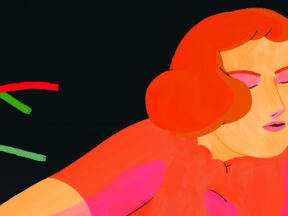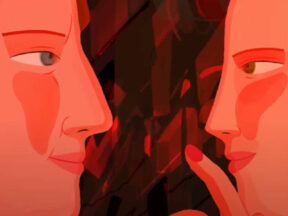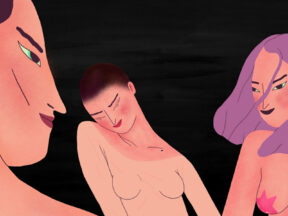
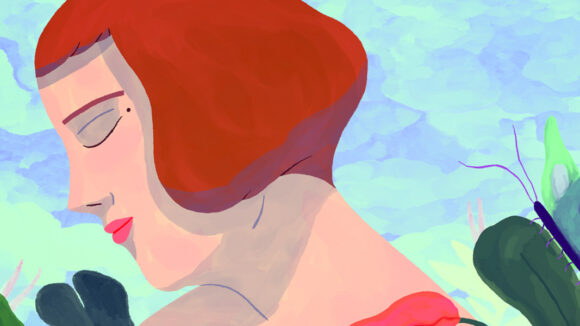
2024 Oscars Short Film Contenders: ‘27’ Director Flóra Anna Buda
Welcome to Cartoon Brew’s series of spotlights focusing on the animated shorts that have qualified for the 2024 Oscars. There are several ways a film can earn eligibility. With these profiles, we’ll be focusing on films that have done so by winning an Oscar-qualifying award at an Oscar-qualifying festival.
Today’s short is 27 from Flóra Anna Buda, who burst onto the scene in 2019 with her short Entropia, which received a special mention at the GLAS Animation Festival and won the Teddy award at the Berlinale. 27 earned its Oscar qualification by winning the short film Palme d’Or at Cannes. It later won three awards at Annecy, including the Cristal for best short film, best original music for a short film, and the Animation Sans Frontiéres award.
In 27, the film’s protagonist, Alice, is celebrating her 27th birthday. An adult by almost any measure, she is suffocating a bit as she still lives with her parents and nosey younger brother. Feeling stuck, she regularly disappears into her dreams to escape her dreary everyday life. After a psychedelic party on a factory roof, she is involved in a serious drunken bike accident. But will a brush with death be enough for her to take control of her life?
Cartoon Brew: What did you learn from Entropia that helped you the most while developing and producing ’27,’ a more narrative-driven and grounded story?
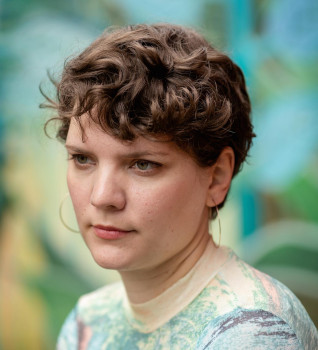
Flóra Anna Buda: I’ve learned that often less is more and that by working with a smaller team and doing the pre-production myself – thoroughly and accurately – I can achieve the results I really want. I loved working on Entropia just as much as I enjoyed making 27. This time, however, I wanted to try a different genre and tell a different story. I wanted to be braver, more communicative, and more direct. I also learned to express myself more effectively, and I feel that working this way, I was able to create more connection between the film and the audience.
What was it about this story or concept that connected with you and compelled you to direct the film?
Honestly, the whole thing. Every second in this story was inspired by a real-life event I experienced. Out of respect for the people I took inspiration from, I changed my characters’ appearances and certain attributes to make them fictional. Imagine I had all the ingredients in my fridge to make a salad, and I put them into a chopper; they look different, but they are the same carrots and apples inside.
My motivation became strong enough to make the film when I moved out of my parent’s place. Since then, I have moved from apartment to apartment, city to city, and country to country. It’s not over yet; I’m in the middle of packing again. My search for a home continues, but I’ll stay in the outskirts of Paris this time.
What did you learn through the experience of making this film, either production-wise, filmmaking-wise, creatively, or about the subject matter?
I learned that taking a risk to achieve a high level of honesty pays off in the end, even if it might reveal much of your personal life and background. The fear I felt during the production, that I’d be ashamed or humiliated if I showed this film to anyone, suddenly turned into power and healed so many wounds. I also found more empathy towards the audience and discovered the power of cinema while talking to people who felt touched by my story. I heard stories from people from my parents’ generation who opened up after seeing the film and discussed the topic of sexuality amongst their friends, telling each other stories they had never dared to share before. This feels like it may be the biggest achievement so far. After the film got its extraordinary recognition, new doors I thought I could never dream of opened in my mind. I’m really grateful I could make 27.
Can you describe how you developed your visual approach to the film? Why did you settle on this style/technique?
I knew 27 would be very explicit and that my parents would see it. It might sound weird, but I felt that if I created a very aesthetically pleasing visual using this painting-like universe and these moods and colors as a base, they would forgive me for directing an extremely personal, pornographic film about my life and sexual fantasies. It worked!

